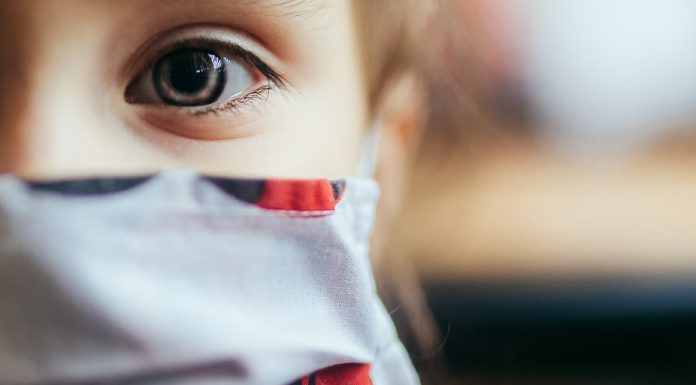Just Facts on Monday published an extensive analysis showing that government officials, public health bureaucrats, and Big Tech companies censored or distorted the truth about face masks, which “caused widespread harm and countless deaths.”
The report cites scientific studies and quotes prominent doctors. These sources all agree that face masks do not significantly prevent the spread of respiratory illnesses, which dispels the idea that a scientific consensus supports mask mandates.
“Children should not wear face masks,” said Martin Kulldorff, a professor of medicine at Harvard Medical School. “They don’t need it for their own protection and they don’t need it for protecting other people either.”
Another Harvard professor, Joseph Allen, said that “COVID-19 is like the flu” for kids, and kids should not be forced to wear a mask to protect against the flu.
Erica Shenoy, a doctor at Massachusetts General Hospital, said that face masks offer “little, if any, protection from infection.”
Two researchers, Lisa Brosseau and Margaret Sietsema, concluded in their studies that “there is no scientific evidence” to suggest that “cloth or surgical masks are effective in reducing the risk of SARS-CoV-2 transmission.”
Some doctors argued that face masks harmed human mental and physical health because they cause bacterial build-up, obscure face-to-face communication, and prevent relationships from forming.
“On net, I think the masks not only have not been effective, but have been harmful,” said Jay Bhattacharya, a professor of medicine at Stanford University.
The report stated that government officials have imposed mask mandates under the false beliefs that large droplets from breathing, coughing, talking and sneezing spread COVID-19, and that these droplets remain airborne for a few seconds or minutes.
Large droplets do not cause most COVID-19 transmissions. Instead, COVID-19 spreads through aerosol particles, which can stay in the air for hours.
About 90% of infectious particles are “less than 1 micron in diameter” and some are as small as 0.125 microns.
Pores in surgical masks measure 17 to 51 microns in diameter, and pores in cloth masks are between 80 to 500 microns in diameter.
Most Americans wear surgical or cloth face masks and thus receive no protection.
Respirators, also called N95 masks, have small enough pores (about 0.3 microns) to block some larger aerosol particles, but these face masks limit proper breathing, cause headaches, cardio-pulmonary stress and discomfort.
OSHA standards acknowledge that N95 masks “may place a burden on an employee’s health,” and so employees need medical evaluations before wearing respirators.
To receive the benefit that N95 masks may provide, the wearer must follow strict sanitary procedures before putting the mask on and refrain from touching or adjusting it while wearing it.
Several meta-studies show that N95 masks, despite having smaller pores than cloth or surgical masks, cannot protect against respiratory illnesses.
The Journal of Evidence-Based Medicine reported in March 2020 that “there were no statistically significant differences in preventing laboratory-confirmed influenza, laboratory-confirmed respiratory viral infections, laboratory-confirmed respiratory infection and influenza-like illness using N95 respirators and surgical masks.”
Face masks do not block the transmission of respiratory illnesses, but they prevent communication and deteriorate social bonds.
The Perceptual and Motor Skills journal found “a powerful effect of facial expression on person perception,” meaning that people perceive others as “kinder, more attractive, more sympathetic, more sincere, more sociable, and more competent” when they can see their facial expressions.
The American Journal of Infection Control noted that humans “cannot see most facial expressions of a person wearing a mask,” which “obscures an important nonverbal mode of communication.”
The Neuropsychologia journal observed a link between “rewarding social signals from a smiling face” and “relational memory.”
The study compared smiling faces with neutral faces and found that participants were 12 percent more likely to remember a person’s name if it was associated with a smiling rather than neutral face. Face masks would likely amplify the difference.
The Hearing Review published a study in 2020 that demonstrated a link between poor health outcomes and poor hearing because the doctor and patient could not effectively communicate.
The study found that a “cornerstone of patient safety and quality healthcare is effective communication which allows patients to participate fully in their care,” but face masks obstruct the speaker’s face.
“In short, the speech quality degradation, in combination with room noise/reverberation and the absence of visual cues, renders speech close to unintelligible for many,” according to the study.
The Just Facts report concluded that “masks of all types have negative impacts on some people, including headaches, difficulty breathing, increased cardio-pulmonary stress during exercise, marked discomfort, and weakened social bonds.”

